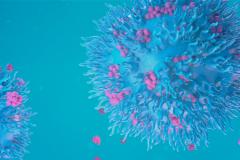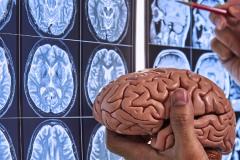- Overview
-
Intellectual disability (ID) and medical illness seen in some children is due to treatable genetic conditions known as inborn errors of metabolism. Many of these can be treated with diet or drugs. As a Co-Lead Investigator of the TIDEX (Treatable Intellectual Disability Program - Exome Sequencing) program at the CFRI, our group aims to describe new inborn errors of metabolism by specifically targeting and identifying patients with these classes of metabolic genetic diseases as we anticipate these children will be highly amenable to treatment. This program, lead by Dr. Clara van Karnebeek has been incredibly successful to date. Via the use of a leading-edge tests combined with bioinformatics tools known as "whole exome sequencing" (WES), the multidisciplinary TIDEX team has identified several patients who have gone on to have life-saving treatment. TIDEX work is ongoing, changing the approach to diagnosis in BC, one rare disorder and incredible life at a time.
Defining the genetic cause of human primary immunodeficiency disorders can also be lifesaving for affected patients, and provides the unique opportunity to study the impact of specific genes on the development and regulation of the human immune system. Gene discovery and phenotypic characterization of novel immune dysregulation and immune deficiency disorders has been another key area of my clinical and research focus. Along with Pediatric Immunologist Dr. Stuart Turvey and others at the CFRI, we were the first to characterize a novel disorder on the JAK/STAT pathway, and have shown successful stem cell transplant in human MALT1 deficiency. We aim to further characterize other disorders along the NF-kappa-B and JAK/STAT pathways and other rare primary immunodeficiency disorders. We are certain of success given the wealth of support and knowledge present at our centre and core initiatives established at the CFRI. There are tremendous possibilities for treatment and cure in these patients.
As a clinician, I work as part of a multidisciplinary team with other Medical Geneticists, Genetic Counsellors and health-care professionals caring for children, women in pregnancy and families through the British Columbia Provincial Medical Genetics Programme. Our service is a busy, provincial program that sees approximately 3000 families per year as outpatient, inpatient and outreach consultations. Patients are seen with a wide variety of prenatal, paediatric, and adult conditions. There is close affiliation with both diagnostic and research laboratories. My clinical interests include a focused interest in immune deficiency disorders, particularly those that present with severe atopic dermatitis, genodermatoses (genetic skin diseases) and vascular anomalies.
As a Clinical Educator within the Department of Medical Genetics (http://medgen.med.ubc.ca/clinical-genetics), I am committed to fostering the education and professional development of the residents, fellows and students training in our multidisciplinary clinical education programs.
- Publications
-
Congenital Hypothalamic "Hamartoblastoma" Versus "Hamartoma": Suggestions for Neuropathologic Terminology Emanating From a Mid-gestational Autopsy Case of Pallister-Hall Syndrome.
Pediatric and developmental pathology : the official journal of the Society for Pediatric Pathology and the Paediatric Pathology Society
Dunham C and McFadden D and Dahlgren L and Butler B and Hamilton S and McKinnon M
DOI: 10.1177/1093526617701338
PubMed: 28429635
2018A case of splenomegaly in CBL syndrome.
European journal of medical genetics
Coe RR and McKinnon ML and Tarailo-Graovac M and Ross CJ and Wasserman WW and Friedman JM and Rogers PC and van Karnebeek CDM
DOI: 10.1016/j.ejmg.2017.04.009
PubMed: 28414188
07/2017JAK1 gain-of-function causes an autosomal dominant immune dysregulatory and hypereosinophilic syndrome.
The Journal of allergy and clinical immunology
Del Bel KL and Ragotte RJ and Saferali A and Lee S and Vercauteren SM and Mostafavi SA and Schreiber RA and Prendiville JS and Phang MS and Halparin J and Au N and Dean JM and Turvey SE
DOI: 10.1016/j.jaci.2016.12.957
PubMed: 28111307
06/2017The importance of considering monogenic causes of autoimmunity: A somatic mutation in KRAS causing pediatric Rosai-Dorfman syndrome and systemic lupus erythematosus.
Clinical immunology (Orlando, Fla.)
Ragotte RJ and Dhanrajani A and Pleydell-Pearce J and Del Bel KL and Tarailo-Graovac M and van Karnebeek C and Terry J and Senger C and McKinnon ML and Seear M and Prendiville JS and Turvey SE
DOI: 10.1016/j.clim.2016.12.006
PubMed: 28043923
02/2017Mutations in the Chromatin Regulator Gene BRPF1 Cause Syndromic Intellectual Disability and Deficient Histone Acetylation.
American journal of human genetics
Yan K and Rousseau J and Littlejohn RO and Kiss C and Lehman A and Rosenfeld JA and Stumpel CTR and Stegmann APA and Robak L and Scaglia F and Nguyen TTM and Fu H and Ajeawung NF and Yang XJ
DOI: 10.1016/j.ajhg.2016.11.011
PubMed: 27939640
01/2017Successful clinical treatment and functional immunological normalization of human MALT1 deficiency following hematopoietic stem cell transplantation.
Clinical immunology (Orlando, Fla.)
Rozmus J and McDonald R and Fung SY and Del Bel KL and Roden J and Senger C and Schultz KR and McKinnon ML and Davis J and Turvey SE
DOI: 10.1016/j.clim.2016.04.011
PubMed: 27109639
07/2016PIK3CA-associated developmental disorders exhibit distinct classes of mutations with variable expression and tissue distribution.
JCI insight
Mirzaa G and Timms AE and Conti V and Boyle EA and Girisha KM and Martin B and Kircher M and Olds C and Juusola J and Collins S and Park K and Carter M and Glass I and Krägeloh-Mann I and Dobyns WB
DOI: 10.1172/jci.insight.87623
PubMed: 27631024
06/2016Exome Sequencing and the Management of Neurometabolic Disorders.
The New England journal of medicine
Tarailo-Graovac M and Shyr C and Ross CJ and Horvath GA and Salvarinova R and Ye XC and Zhang LH and Bhavsar AP and Lee JJ and Drögemöller BI and Abdelsayed M and Alfadhel M and van Karnebeek CD
DOI: 10.1056/nejmoa1515792
PubMed: 27276562
06/2016Pathogenetics of alveolar capillary dysplasia with misalignment of pulmonary veins.
Human genetics
Szafranski P and Gambin T and Dharmadhikari AV and Akdemir KC and Jhangiani SN and Schuette J and Godiwala N and Yatsenko SA and Sebastian J and Madan-Khetarpal S and Surti U and Stankiewicz P
DOI: 10.1007/s00439-016-1655-9
PubMed: 27071622
05/2016Weaver Syndrome-Associated EZH2 Protein Variants Show Impaired Histone Methyltransferase Function In Vitro.
Human mutation
Cohen AS and Yap DB and Lewis ME and Chijiwa C and Ramos-Arroyo MA and Tkachenko N and Milano V and Fradin M and McKinnon ML and Townsend KN and Xu J and Van Allen MI and Ross CJ and Gibson WT
DOI: 10.1002/humu.22946
PubMed: 26694085
03/2016Mutations in FLNC are Associated with Familial Restrictive Cardiomyopathy.
Human mutation
Brodehl A and Ferrier RA and Hamilton SJ and Greenway SC and Brundler MA and Yu W and Gibson WT and McKinnon ML and McGillivray B and Alvarez N and Giuffre M and Schwartzentruber J and Gerull B
DOI: 10.1002/humu.22942
PubMed: 26666891
03/2016IRAK-4 deficiency as a cause for familial fatal invasive infection by Streptococcus pneumoniae.
Clinical immunology (Orlando, Fla.)
Grazioli S and Hamilton SJ and McKinnon ML and Del Bel KL and Hoang L and Cook VE and Hildebrand KJ and Junker AK and Turvey SE
DOI: 10.1016/j.clim.2015.12.007
PubMed: 26698383
02/2016Somatic mosaicism for the p.His1047Arg mutation in PIK3CA in a girl with mesenteric lipomatosis.
American journal of medical genetics. Part A
Cohen AS and Townsend KN and Xiang QS and Attariwala R and Borchers C and Senger C and Picker W and Levi J and Yewchuk L and Tan J and Eydoux P and Lum A and Yong SL and McKinnon ML and Gibson WT
DOI: 10.1002/ajmg.a.36622
PubMed: 24903541
09/2014The CARD11-BCL10-MALT1 (CBM) signalosome complex: Stepping into the limelight of human primary immunodeficiency.
The Journal of allergy and clinical immunology
Turvey SE and Durandy A and Fischer A and Fung SY and Geha RS and Gewies A and Giese T and Greil J and Keller B and McKinnon ML and Neven B and Rozmus J and Ruland J and Snow AL and Stepensky P and Warnatz K
DOI: 10.1016/j.jaci.2014.06.015
PubMed: 25087226
08/2014Combined immunodeficiency associated with homozygous MALT1 mutations.
The Journal of allergy and clinical immunology
McKinnon ML and Rozmus J and Fung SY and Hirschfeld AF and Del Bel KL and Thomas L and Marr N and Martin SD and Marwaha AK and Priatel JJ and Tan R and Senger C and Tsang A and Turvey SE
DOI: 10.1016/j.jaci.2013.10.045
PubMed: 24332264
05/2014Genetic variants of Tgfb1 act as context-dependent modifiers of mouse skin tumor susceptibility.
Proceedings of the National Academy of Sciences of the United States of America
Mao JH and Saunier EF and de Koning JP and McKinnon MM and Higgins MN and Nicklas K and Yang HT and Balmain A and Akhurst RJ
DOI: 10.1073/pnas.0602581103
PubMed: 16702541
05/2006Epistatic interactions between modifier genes confer strain-specific redundancy for Tgfb1 in developmental angiogenesis.
Genomics
Tang Y and Lee KS and Yang H and Logan DW and Wang S and McKinnon ML and Holt LJ and Condie A and Luu MT and Akhurst RJ
DOI: 10.1016/j.ygeno.2004.09.003
PubMed: 15607422
01/2005Genetic modifiers interact with maternal determinants in vascular development of Tgfb1(-/-) mice.
Human molecular genetics
Tang Y and McKinnon ML and Leong LM and Rusholme SA and Wang S and Akhurst RJ
DOI: 10.1093/hmg/ddg164
PubMed: 12812985
07/2003Variants of the microsomal triglyceride transfer protein gene are associated with plasma cholesterol levels and body mass index.
Journal of lipid research
Ledmyr H and Karpe F and Lundahl B and McKinnon M and Skoglund-Andersson C and Ehrenborg E
PubMed: 11792722
01/2002Tissues of MSH2-deficient mice demonstrate hypermutability on exposure to a DNA methylating agent.
Proceedings of the National Academy of Sciences of the United States of America
Andrew SE and McKinnon M and Cheng BS and Francis A and Penney J and Reitmair AH and Mak TW and Jirik FR
DOI: 10.1073/pnas.95.3.1126
PubMed: 9448296
02/1998Base transitions dominate the mutational spectrum of a transgenic reporter gene in MSH2 deficient mice.
Oncogene
Andrew SE and Reitmair AH and Fox J and Hsiao L and Francis A and McKinnon M and Mak TW and Jirik FR
DOI: 10.1038/sj.onc.1201180
PubMed: 9244348
07/1997 - Research
-
Current Project
My recent work in the world of vascular anomalies, with fellow clinicians in the multidisciplinary Vascular Anomalies Clinic (VAC) at BC Children's Hospital, has centered on the phenotypic and molecular characterization of patients within the spectrum of the PIK3CA-overgrowth disorders. Additionally, in concert with collaborators at the BC Cancer Agency, we are working towards molecular characterization of rare vascular anomalies (such as spindle cell hemangioma and mixed lymphatic anomalies).Current Project
In human primary immunodeficiency disorders, we aim to further characterize other disorders along the NF-kappa-B and JAK/STAT pathways and other rare primary immunodeficiency disorders. We are certain of success given the wealth of support and knowledge present at our centre and through multiple CFRI Initiatives. There are tremendous possibilities for treatment and cure in these patients.Current Projects
TIDEX work is ongoing, changing the approach to diagnosis in BC, one rare disorder and incredible life at a time.
First-of-its-kind pan-Canadian trial to treat baby brain cancers without radiation
The DECRYPT-BABYBRAIN clinical trial brings together leading paediatric centres coast-to-coast to pioneer a radiation-free approach to treat rare and aggressive brain cancers in babies. Dr. Sylvia Cheng is the lead for BC Children's Hospital.





